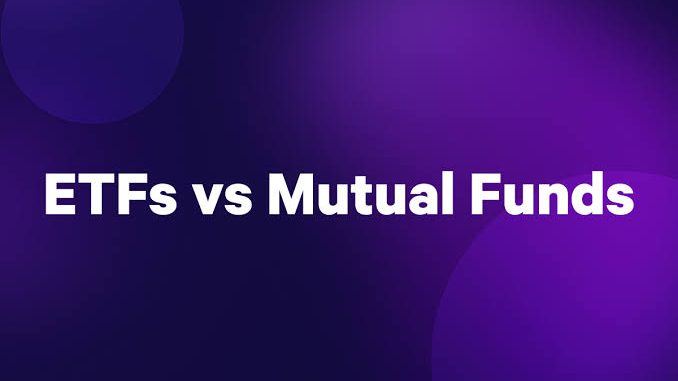
When it comes to investing, two popular choices often come up: Mutual Funds and ETFs (Exchange-Traded Funds). Both are great ways to grow your money over time — but they work differently, and each has its pros and cons.
In this post, we’ll break it down in a simple way so you can decide what fits your goals best.
What is a Mutual Fund?
A mutual fund pools money from many investors and puts it into a mix of stocks, bonds, or other assets. A professional manager decides where to invest the money.
-
Managed by experts
-
Priced once per day (after the market closes)
-
Usually has higher fees
-
Good for long-term, hands-off investors
What is an ETF?
An ETF is also a bundle of assets like stocks or bonds, but it’s traded like a stock on the stock exchange. You can buy or sell ETFs any time during the trading day.
-
Trades like a stock
-
Usually lower fees
-
More flexible & transparent
-
Great for DIY or short-term investors
Key Differences: Mutual Funds vs ETFs
| Feature | Mutual Funds | ETFs |
|---|---|---|
| Trading | End of day | Anytime during market hours |
| Fees | Often higher (1%-2%) | Usually lower (<0.5%) |
| Management | Mostly actively managed | Mostly passive (index-based) |
| Minimum Investment | Often required ($500–$1000+) | Can start with 1 share |
| Tax Efficiency | Less tax efficient | More tax efficient |
| Ideal for | Long-term, hands-off investors | Flexible, cost-aware investors |
Which One Is Better for You?
It depends on your investing style:
-
Choose Mutual Funds if you:
-
Want professionals to manage your money
-
Don’t plan to monitor your investments daily
-
Are okay with higher fees for long-term strategy
-
-
Choose ETFs if you:
-
Prefer lower fees and transparency
-
Want to trade during the day
-
Like more control over your portfolio
-
Quick Tip:
Many investors use both. For example, ETFs for flexibility + mutual funds for retirement plans (like IRAs or 401(k)s).
Final Thoughts
There’s no one-size-fits-all. The best choice depends on your financial goals, risk level, and how much control you want. If you’re just starting, ETFs might be easier to manage. But if you trust experts and want to “set it and forget it,” mutual funds may be better.

Leave a Reply